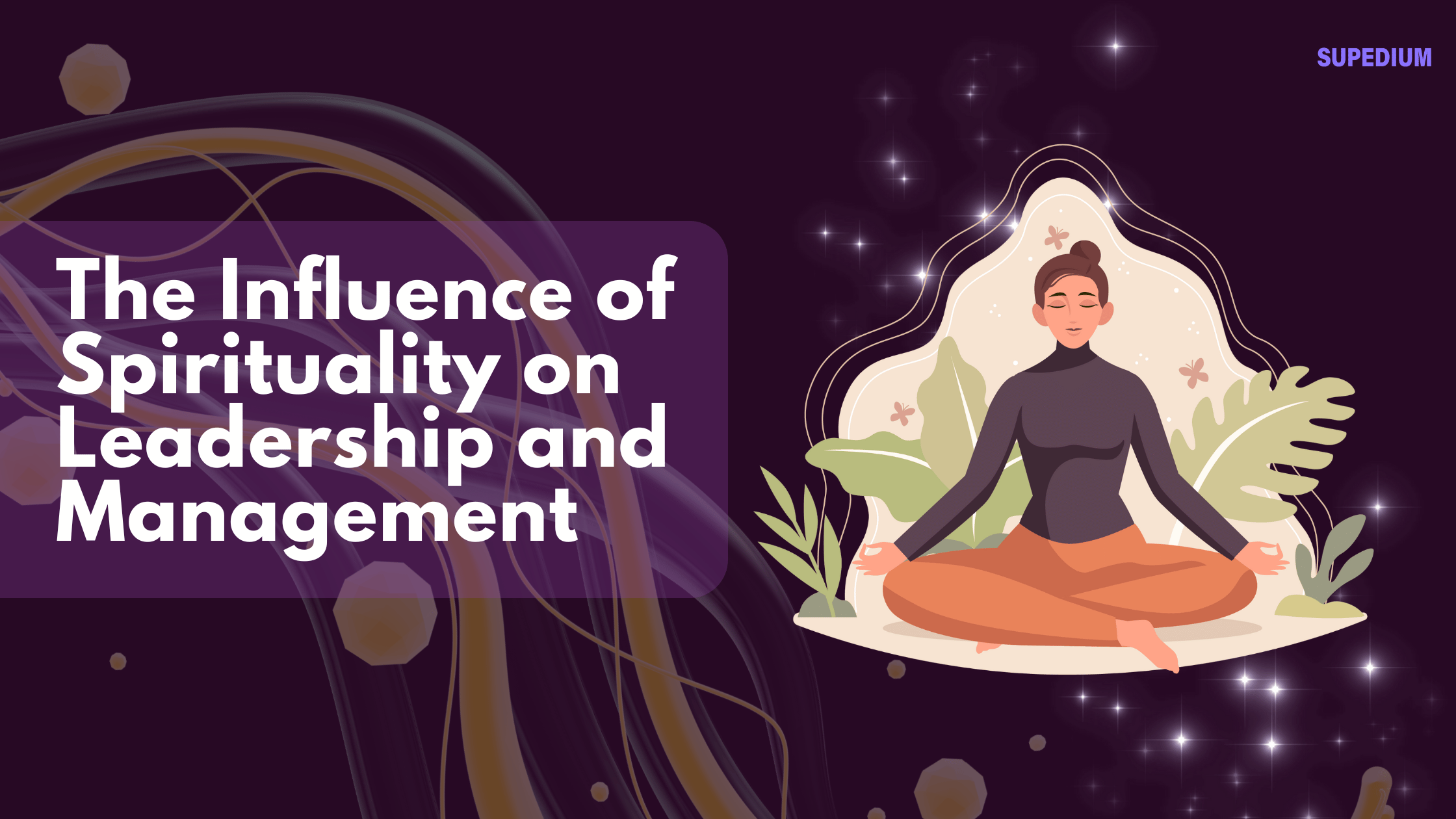Table of Contents
![]()
I. Introduction
Spirituality, often seen as a deeply personal and individual experience, is increasingly recognized as a significant influence on leadership and management practices in contemporary organizations. Distinct from organized religion, spirituality encompasses elements such as meaning, purpose, and interconnectedness. This article explores how spirituality shapes leadership styles and management practices, and its growing importance in the workplace.
II. Theoretical Foundations
A. Historical Perspectives
Historically, leadership was often viewed through the lens of authority and control. However, the evolution of spiritual leadership theories has shifted this perspective towards a more holistic understanding. Leaders are now seen as guides who foster environments of trust, collaboration, and ethical behavior.
B. Key Theories and Models
Several theories highlight the connection between spirituality and leadership:
- Spiritual Leadership Theory (Fry, 2003) emphasizes the need for leaders to create a vision that inspires and motivates employees, promoting a sense of purpose.
- Servant Leadership (Greenleaf, 1970) focuses on leaders serving their teams, prioritizing the needs of others over their own, thereby fostering a supportive and nurturing environment.
- Transformational Leadership integrates spiritual principles by encouraging leaders to inspire and elevate their followers, emphasizing values and collective growth.
III. Spirituality in Leadership
A. Characteristics of Spiritual Leaders
Spiritual leaders possess several key characteristics:
- Vision and Purpose: They articulate a clear vision that resonates with the values and aspirations of their teams.
- Empathy and Compassion: They understand the emotional and psychological needs of their employees, fostering an inclusive and supportive workplace.
- Ethical and Moral Grounding: Spiritual leaders prioritize ethical decision-making, ensuring that their actions align with a higher purpose.
B. Impact on Leadership Style
The influence of spirituality encourages a shift from authoritarian leadership styles to more participative and collaborative approaches. Spiritual leaders engage their teams, valuing input and fostering a sense of ownership among employees.
C. Case Studies
Numerous examples illustrate the impact of spiritual leadership across various sectors. Leaders like Howard Schultz of Starbucks emphasize a purpose-driven mission, focusing on employee well-being and social responsibility. Their leadership fosters a culture where both employees and customers feel valued and connected.
IV. Spirituality in Management
A. Integrating Spirituality into Organizational Culture
Integrating spirituality into management practices can create a purpose-driven workplace. Organizations that prioritize spiritual values often see increased employee engagement and loyalty.
B. Practices that Foster Spirituality
Organizations can adopt various practices to encourage spirituality:
- Mindfulness and Meditation: Implementing mindfulness programs helps employees reduce stress and enhance focus.
- Team-Building Activities: Organizing activities centered around shared values strengthens bonds among team members and fosters a sense of community.
C. Impact on Employee Performance
The incorporation of spirituality into management leads to significant benefits:
- Job Satisfaction: Employees report higher levels of satisfaction and morale when their workplace aligns with their values.
- Reduced Turnover: A supportive, purpose-driven culture lowers turnover rates, as employees feel more connected to their roles.
- Enhanced Creativity: A spiritually enriched environment encourages innovative thinking and creativity, allowing employees to thrive.
V. Challenges and Criticisms
A. Potential Misinterpretations of Spirituality
Despite its benefits, spirituality in the workplace can be misinterpreted. Some may confuse it with religious practices, leading to discomfort among employees with different beliefs. This requires careful navigation to maintain inclusivity.
B. Balancing Spirituality and Professionalism
Leaders must find a balance between fostering spirituality and maintaining professionalism. Establishing clear boundaries is essential to ensure that spiritual practices do not impose beliefs on employees.
C. Measurement and Evaluation Issues
Assessing the impact of spirituality on leadership effectiveness presents challenges. Developing metrics to evaluate the success of spiritual practices in organizational contexts is crucial for measuring their impact.
VI. Future Directions
A. Emerging Trends in Spirituality and Leadership
The role of spirituality in leadership is evolving with new trends. The rise of technology and remote work environments necessitates innovative approaches to fostering spirituality, such as virtual mindfulness programs and digital community-building initiatives.
B. Research Opportunities
There are ample opportunities for further research on the intersection of spirituality and leadership. Studies exploring the impact of spirituality on organizational outcomes, as well as cross-cultural comparisons of spiritual leadership practices, can provide valuable insights.
VII. Conclusion
The influence of spirituality on leadership and management is profound and multifaceted. As organizations increasingly recognize the importance of purpose and connectedness, integrating spiritual principles into leadership practices becomes essential. By fostering environments that promote spiritual well-being, leaders can enhance employee satisfaction, engagement, and overall organizational effectiveness.
Share This





Be the first to comment